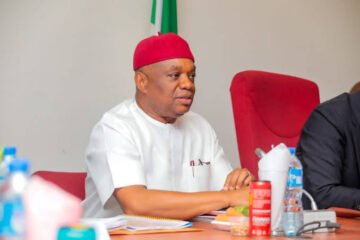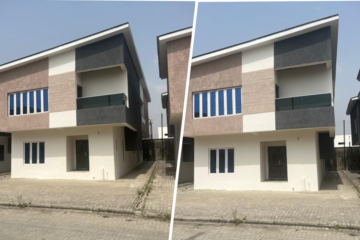Is it possible to build the type of country that meets the needs of its citizens without the misaligned values that stand in the way today? Moky Makura explores a bold new vision aimed at building a digital nation across Africa and the diaspora.
A very patriotic friend recently shared his frustrations and some of the challenges he experienced serving his country in a highly political role on the continent.
I could discern the strong sense of loyalty and love-for-country underlying the deep feelings of disappointment and dissatisfaction at the status quo. It felt like he had given up on his Africa dream and was relinquishing the future of his country to those whose values and vision were so very different to his.
“My country,” he concluded with some sadness from his new job in the US, “will be successful as a concept before it is successful as a country.”
His statement implied to me that there was a need for a shared vision or idea of what his country could be before it could achieve success in practice.
Like a startup, I imagined it would need a business plan, a mission and vision statement backed up with clear values. It would also need a strong leadership team that could execute on the plan and make sound decisions whilst managing resources effectively.
The sad fact is that nearly 90% of startups fail and at least 10% of them fail in the first year. And if countries were like businesses, many in Africa would be dealing with a mass of resignations as people like my friend left, disappointed and dissatisfied.
This discontent is reflected in the number of protests we are seeing across Africa. In March alone people took to the streets in Kenya, Senegal, Central Africa Republic, South Africa, Guinea and the Democratic Republic of Congo to show their disappointment and dissatisfaction at the status quo.
It got me thinking about the indicators of success of a country and how many African ones would be in existence today if the measure of success was staff retention, wellbeing of the workers and the general viability of the business. But that’s for another column.
What was interesting about this idea of a country as a concept, rather than an actual place grounded in its physical reality, was the potential to build a new type of state that met the needs of its citizens without the legacy issues and misaligned values that stand in the way today.
Reimagining traditional concepts
We are the generation that led the transition from the physical to the virtual, enabling us to reimagine traditional concepts in new and innovative ways, so why not a country. We replaced cash with digital transactions, CDs with online streaming, paper books with e-books, and real friends with social media followers.
Given technology evolves and allows us to reinvent old ideas, I wondered if a different way of thinking about country could replace the traditional notions many of us still have about nationhood.
Imagine a country with citizens who share the same values and have the same vision. And it won’t matter where in the world they are because this ‘place’ transcends geographic borders. Belonging is by choice and at its core is building community and sharing opportunity. And the best bit, citizens are connected through digital technologies, allowing them to live anywhere but still belong somewhere.
A group of young Africans are birthing exactly this idea. They are creating a space in a virtual world to escape their frustrations with their countries.
This digital republic, a new society for Africans, by Africans is called Afropolitan. The team behind it plan to offer a digital passport and ultimately an internal economy that offers what they think Africans are most starved of – abundance. And they are asking others to join them to help build it.
I love their bold vision, because they are offering a new expression for belonging and for social, cultural, economic and political exchange to those like my friend who need it.
And if a geographic border doesn’t exist, it’s also a way of harnessing the collective influence and economic power of the African diaspora, which if you include people of African descent that live all over the world, is estimated to be as high as 170m people.
As many African countries continue to lose their top talent like my friend to high-income countries and our young hopefuls leave to chase an impossible European dream that for some ends at the bottom of the English Channel, we need to offer something hopeful now while we wait for our countries to fulfil their promise later.
Unencumbered by the realities of politics, fallible leaders and limited opportunities, virtual countries or digital continents like Afropolitan can succeed where their analogue versions are failing.
They are a viable alternative to those who have lost faith in the real version because they can house the pent-up, unrequited love of country until such time as the physical versions catch up.
Digital nations provide a home for people like my friend who no longer think they belong.













